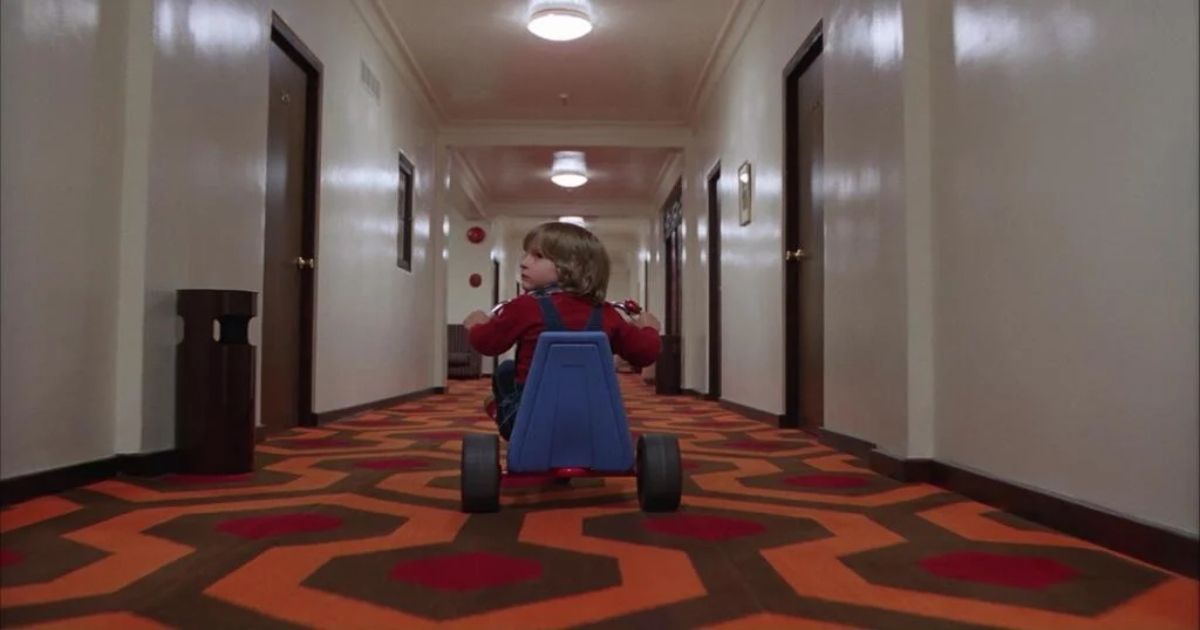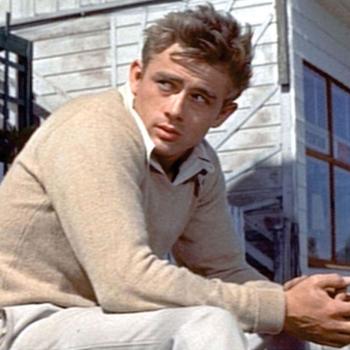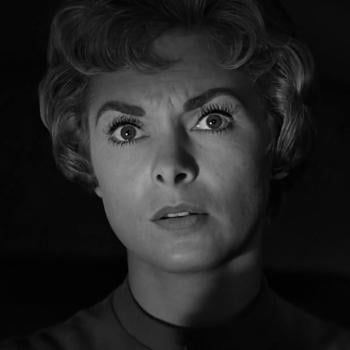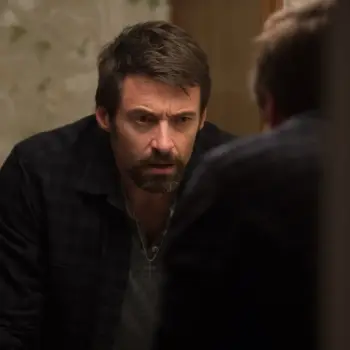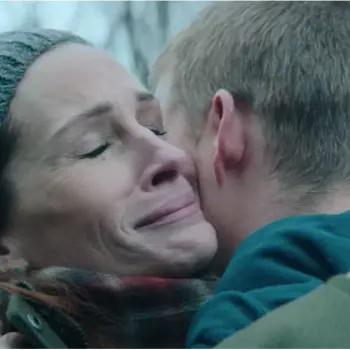
There’s a lot to be grateful for here at the tail end of a long legacy of cinematic masterworks, but it does come with some downsides. Namely, most of said masterworks are often already spoiled to new viewers by virtue of basic participation in the pop culture conversation. People who come to Titanic in 2024 tend to already have “I’ll never let go, Jack!” preloaded. Modern viewers of Jurassic Park aren’t really allowed to be surprised when the dinosaurs break free. And we all kind of know that the dad goes axe-swinging crazy by the end of The Shining.
I mean, it was set in stone that Jack was going to give in to his evil and try to kill his family, right? …
This landmark horror film is based on the famous Stephen King novel. The story sees a family–father Jack, mother Wendy, and child Danny–taking care of an isolated hotel in the dead winter months: nobody told them that this hotel has ghosts that like to stir latent evil within those trapped in its walls. Danny, of course, can sense that something’s wrong here with his budding psychic abilities, but even he doesn’t want to imagine that his dad would ever be moved to such atrocity.
This film adaptation’s biggest departure from King’s text is that it takes it as a given that Jack is in fact predisposed to do the dark bidding of The Overlook Hotel. Jack in King’s novel has his inner demons, yes, but he’s not presented as a bad egg. He has his darkness, and he is unfortunately taken by it during the course of the story. That doesn’t seem to be the case here, and I suppose that brings up certain questions about good, evil, and our place along this spectrum.
There are recurring cycles of violence within this story–both within the character of Jack and the hotel itself. We learn early on that Jack is a recovering alcoholic and has hurt his son on at least one occasion. We are also told that the hotel was the site of a horrific murder from a previous caretaker also stationed there during its off-season. Danny’s stirring psychic power–his ability to “shine”–gives him glimpses of both The Overlook’s bloodied history as well as its future, and he sees carnage in both directions. And so there is a precedent within the story of evil repeating along a predestined circle, always within the same spaces. There are also some vague but charged supernatural hints that Jack was always woven into this fabric of evil–like at the very end when we see Jack in the photo of the hotel ball from 1921.
But I still don’t know if it was necessarily a foregone conclusion that Jack’s plummet into madness was written in stone. There’s a moment about an hour in when Jack is overtaken by a nightmare in which he succumbs to his violent heart and slaughters both Wendy and Danny, and the idea of this genuinely shakes Jack. It’s important to note that right after this, Wendy sees Danny has been injured and immediately connects it to Jack. You could maybe argue that she is jumping to conclusions–but she settles on this idea based on his past history, and also because they very much believe at this point that they are alone in the hotel. Jack then allows his resentment toward Wendy to fester–this is when Jack makes that fatal turn into true wickedness, and also when the ghosts of The Overlook start to manifest themselves to him. So, Jack lets himself be vulnerable to the dark influence of the hotel in how he chooses to harbor hatred in his heart.
There is also the hanging question of whether the hotel’s evil will claim Danny too. He may not have the same vices as his father, but he may have inherited his wicked seed, which seems like exactly the kind of thing that could be mutated by a place like this nightmare hotel. We see this stirring in him midway through when “Danny” gets locked away and the “Tony” persona seems to take over–the same time that Jack’s capacity for evil is really being awakened. We get to sit through that whole “redrum” sequence wondering whether Danny’s about to take a knife to his mother. (He doesn’t, he just needed to borrow her lipstick to draw on the bathroom door. We can assume “Tony” only wanted the knife for decoration, I suppose.)
In the end, the designs of The Overlook are frustrated, at least where it really counts. The Overlook claims Jack after all, but Wendy and Danny are able to escape Jack’s rampage. From this, I guess we can assume that evil is predestined insomuch as we leave our hearts vulnerable to its machinations: where we resist, when we give it no part in us, we can avoid its hold. And I think a large part of that is knowing your weak spaces and doing whatever you need to avoid them. We’re still the ones behind the wheel.
